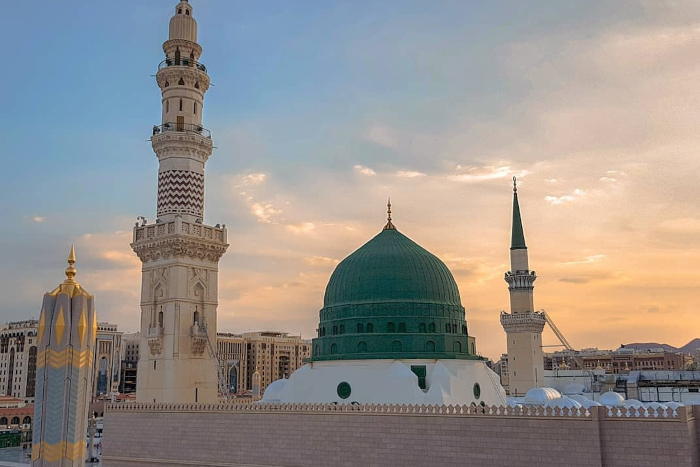
Contents
The Parents, the Traveller and the Oppressed
عن أبي هريرة قال: قال رسول الله صلى الله عليه وسلم: ثلاث دعوات مستجابات: دعوة المظلوم ودعوة المسافر ودعوة الوالد على ولده (سنن الترمذي، الرقم: ٣٤٤٨، وقال: هذا حديث حسن)[1]
Hazrat Abu Hurairah (radhiyallahu ‘anhu) reports that Hazrat Rasulullah (sallallahu ‘alaihi wasallam) said, “Three duas are such that they will undoubtedly gain acceptance; the dua of the father (or mother, in regard to their child), the dua of the musaafir (traveller) and the dua of the oppressed.”
The Fasting Person and the Just Ruler
عن أبي هريرة قال: قال رسول الله صلى الله عليه وسلم: ثلاثة لا ترد دعوتهم: الصائم حتى يفطر والإمام العادل ودعوة المظلوم يرفعها الله فوق الغمام ويفتح لها أبواب السماء ويقول الرب: وعزتي لأنصرنك ولو بعد حين (سنن الترمذي، الرقم: ٣٥٩٨، وقال: هذا حديث حسن)
Hazrat Abu Hurairah (radhiyallahu ‘anhu) reports that Hazrat Rasulullah (sallallahu ‘alaihi wasallam) said, “Three people are such that their dua will not be rejected; the fasting person until he breaks his fast, the just ruler, and the dua of the oppressed person which Allah Ta‘ala raises above the clouds, and for which the doors of the heavens are opened, and Allah Ta‘ala says, ‘By My honour! I will definitely assist you – even if it is after some time!’”
The One Making Dua for His Muslim Brother in His Absence
عن عبد الله بن عمرو بن العاص أن رسول الله صلى الله عليه وسلم قال: إن أسرع الدعاء إجابة دعوة غائب لغائب (سنن أبي داود، الرقم: ١٥٣٥، سنن الترمذي، الرقم: ١٩٨٠، وقال: هذا حديث غريب لا نعرفه إلا من هذا الوجه والأفريقي يضعف في الحديث)
Hazrat Abdullah bin Amr bin Aas (radhiyallahu ‘anhuma) reports that Hazrat Rasulullah (sallallahu ‘alaihi wasallam) said, “Indeed the dua that gains acceptance most swiftly is the dua which one makes for a person in his absence.”
The Mujaahid and the One Performing Hajj or Umrah
عن ابن عمر عن النبي صلى الله عليه وسلم قال: الغازي في سبيل الله والحاج والمعتمر وفد الله دعاهم فأجابوه وسألوه فأعطاهم (سنن ابن ماجه، الرقم: ٢٨٩٣)
Hazrat Ibnu Umar (radhiyallahu ‘anhuma) narrates that Hazrat Rasulullah (sallallahu ‘alaihi wasallam) said, “The mujaahid and those performing hajj and umrah are the delegation of Allah Ta‘ala. If they make dua to Allah Ta‘ala, He answers their dua and if they beg Him for anything, He grants it to them.”[2]
The Sick Person
عن عمر بن الخطاب قال: قال لي النبي صلى الله عليه وسلم: إذا دخلت على مريض فمره أن يدعو لك فإن دعاءه كدعاء الملائكة (سنن ابن ماجه، الرقم: ١٤٤١)
Hazrat Umar (radhiyallahu ‘anhu) reports that Hazrat Rasulullah (sallallahu ‘alaihi wasallam) said, “When you meet the one who is sick then request him to make dua for you, as his dua is like the dua of the angels (i.e. on account of the sickness, his sins have been forgiven, hence he resembles the angels in being free of sins, due to which his dua will gain quick acceptance).”
The One who Makes Dua in Times of Ease
عن أبي هريرة، قال: قال رسول الله صلى الله عليه وسلم: من سره أن يستجيب الله له عند الشدائد والكرب فليكثر الدعاء في الرخاء (سنن الترمذي، الرقم: ٣٣٨٢، وقال: هذا حديث غريب)
Hazrat Abu Hurairah (radhiyallahu ‘anhu) reports that Hazrat Rasulullah (sallallahu ‘alaihi wasallam) said, “The one who wishes that Allah Ta‘ala answers his duas during times of difficulty and hardship should make abundant dua in times of ease and comfort.”
The One who Assists a Person in Financial Difficulty
عن ابن عمر قال: قال رسول الله صلى الله عليه وسلم: من أراد أن تستجاب دعوته وأن تكشف كربته فليفرج عن معسر (مسند أحمد، الرقم: ٤٧٤٩)[4]
Hazrat Ibnu Umar (radhiyallahu ‘anhuma) reports that Hazrat Rasulullah (sallallahu ‘alaihi wasallam) said, “The one who wishes that his dua be answered, and his difficultiy be alleviated, should assist one in financial difficulty.”
The Old Person with White Hair
عن أنس بن مالك عن النبي صلى الله عليه وسلم قال: إن الله عز وجل ليستحيي من ذي الشيبة المسلم إذا كان مسددا لزوما للسنة أن يسأل الله فلا يعطيه (المعجم الأوسط للطبراني، الرقم: ٥٢٨٦)[5]
Hazrat Anas (radhiyallahu ‘anhu) reports that Hazrat Rasulullah (sallallahu ‘alaihi wasallam) said, “Indeed Allah Ta‘ala feels shy to reject the dua of a person (an old person) with white hair, when he is rightly-guided and steadfast upon the sunnah.”
The Person Making Dua in Congregation
عن حبيب بن مسلمة الفهري … قال: سمعت رسول الله صلى الله عليه وسلم يقول: لا يجتمع ملأ فيدعو بعضهم ويؤمن البعض إلا أجابهم الله (المستدرك على الصحيحين للحاكم، الرقم: ٥٤٧٨)[6]
Hazrat Habeeb bin Maslamah (radhiyallahu ‘anhu) reports that Hazrat Rasulullah (sallallahu ‘alaihi wasallam) said, “There is no group of people who congregate, then some of them make dua while others say aameen, except that Allah Ta‘ala accepts their dua.”
[1] ولم يذكر الوالدة لأن حقها أكثر فدعاؤها أولى بالإجابة (مرقاة المفاتيح ١٥٣٥/٤)
[2] وإسناده حسن كما في مصباح الزجاجة فى زوائد ابن ماجة ١٨٣/٣
[3] وقال العلامة البوصيري رحمه الله في مصباح الزجاجة (٢١/٢): هذا إسناد رجاله ثقات إلا أنه منقطع قال العلائي في المراسيل والمزي في التهذيب أن رواية ميمون بن مهران عن عمر مرسلة
[4] ورجال أحمد ثقات كما في مجمع الزوائد ١٣٣/٤
[5] وقال العلامة الهيثمي رحمه الله في مجمع الزوائد، الرقم: ١٧٢١٣: وفيه صالح بن راشد وثقه ابن حبان وفيه ضعف وبقية رجاله ثقات
[6] وقال العلامة الهيثمي رحمه الله في مجمع الزوائد، الرقم: ١٧٣٤٧: ورجاله رجال الصحيح غير ابن لهيعة وهو حسن الحديث
 Ihyaaud Deen An Effort to Revive Deen in Totality
Ihyaaud Deen An Effort to Revive Deen in Totality


